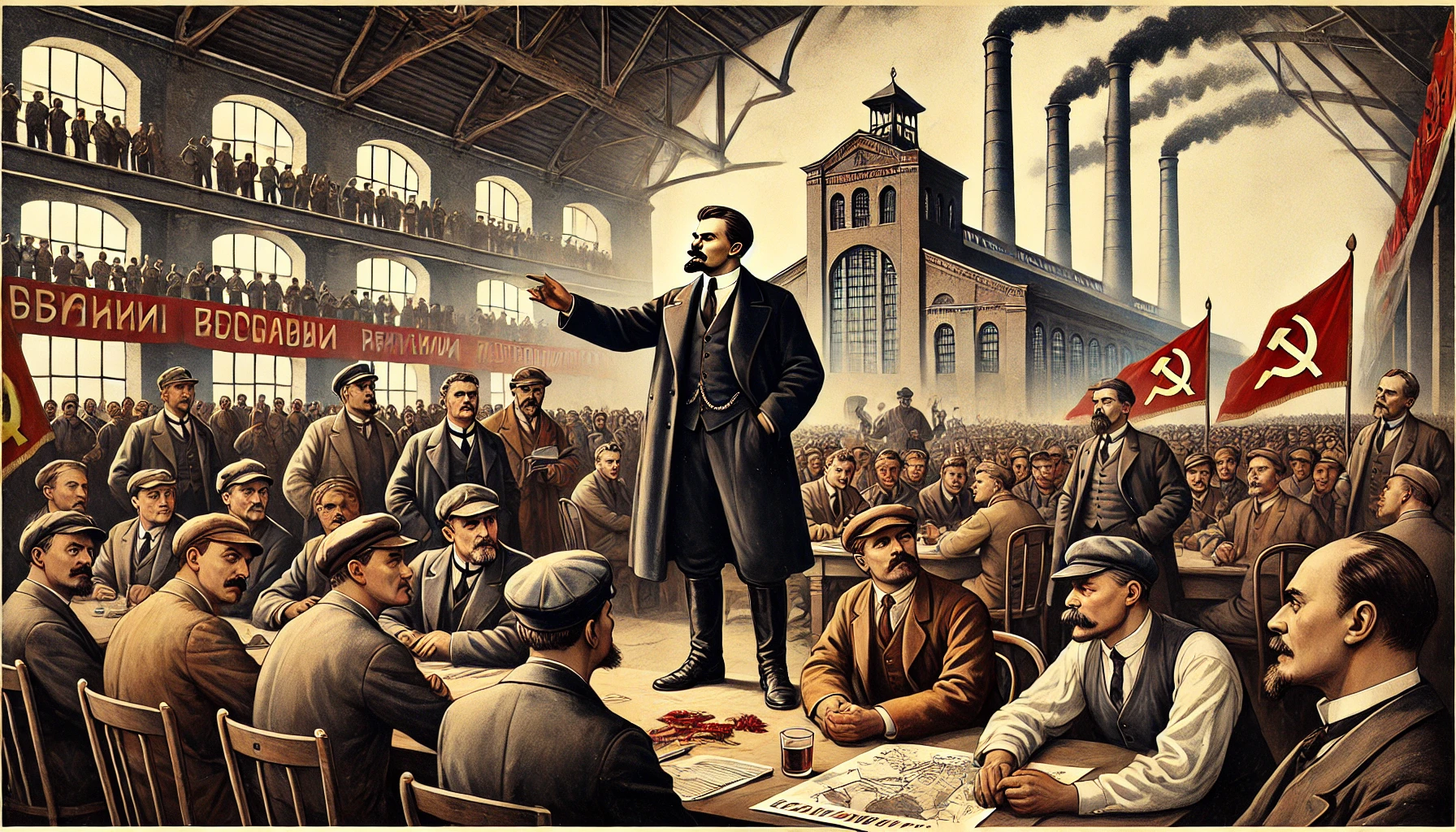The Marxist Blueprint for Healthcare: How Lenin’s Vision Aligns with the Battle Against Private Health Insurance
The ongoing debates about healthcare reform often pit proponents of universal healthcare against defenders of privatized insurance systems. Yet beneath the surface lies a broader ideological struggle. For Marxists, the fight against private health insurance is not merely a policy dispute but part of a larger effort to dismantle capitalism. Drawing on Marx and Lenin’s writings, the battle for healthcare is framed as a necessary step in the march toward a classless society. Lenin’s strategies for undermining civil society offer a blueprint for understanding modern efforts to discredit private health insurance and pave the way for nationalized healthcare systems.
Lenin’s Vision: Dismantling Civil Society for Revolutionary Change
Vladimir Lenin, a seminal figure in Marxist theory, argued that civil society—its institutions, norms, and power structures—must be undermined for socialism to replace capitalism. Lenin viewed these structures, including private industries like healthcare, as tools of bourgeois oppression designed to maintain class hierarchies. His strategy was clear: to erode public trust in such institutions, expose their failures, and replace them with state-controlled systems that prioritized collective well-being over profit.
Private health insurance, a pillar of capitalist healthcare, fits squarely into Lenin’s critique. To Lenin, any system that commodifies human needs, such as healthcare, is inherently exploitative. This sentiment resonates with modern Marxist critiques of private health insurance, which argue that these systems prioritize shareholder profits over patient care, thereby perpetuating inequality.
The Role of Private Health Insurance in Capitalist Exploitation
Critics from a Marxist perspective argue that private health insurance is emblematic of the worst excesses of capitalism. By interposing a profit-driven middleman between patients and care providers, these systems create a framework where health is commodified, and access to care is stratified by wealth. In the United States, private health insurers command billions in revenue, with CEOs like Brian Thompson of UnitedHealthcare earning multimillion-dollar salaries. These profits come at the expense of patients, whose rising premiums, deductibles, and out-of-pocket costs have become sources of widespread frustration.
This system, critics contend, exacerbates class divisions by ensuring that quality healthcare remains a privilege of the affluent. From a Marxist perspective, private health insurance reinforces capitalist structures by exploiting the labor of the working class, who pay into the system yet often struggle to afford or access necessary care.
Luigi Mangione: A Radical Response to a Perceived Injustice
The case of Luigi Mangione underscores how deeply the dissatisfaction with private health insurance resonates with some activists. Mangione, who murdered UnitedHealthcare CEO Brian Thompson, became a polarizing figure. While his actions were widely condemned, a subset of Marxist activists on social media framed them as a desperate response to systemic injustice.
Social media platforms became a battleground, with hashtags and posts linking Mangione’s actions to broader critiques of private health insurance. Marxist commentators argued that the incident highlighted the moral bankruptcy of a system where executives profit while patients suffer. Supporters claimed Mangione’s act was not merely a crime but a symptom of a failing system that drives individuals to desperation.
Discrediting Private Health Insurance: A Strategic Priority
For Marxists, discrediting private health insurance is not an end in itself but a means to a larger goal: the implementation of a nationalized healthcare system. This approach mirrors Lenin’s strategy of exposing institutional failures to justify radical reform. By highlighting the inequities and inefficiencies of private insurance, advocates hope to build public support for alternatives like single-payer healthcare.
Efforts to erode trust in private health insurance include exposing scandals, such as cases where insurers deny life-saving treatments or inflate profits while patients face mounting medical debt. Public campaigns emphasize the moral and economic benefits of universal healthcare, presenting it as a humane alternative to the exploitative practices of private insurers.
The Path to Universal Healthcare: Lenin’s Legacy
In Lenin’s framework, the transition to socialism requires dismantling existing power structures and replacing them with state-controlled alternatives. Applied to healthcare, this means replacing private insurers with a nationalized system that guarantees care as a human right. For Marxists, this is not merely a policy preference but a moral imperative.
The push for universal healthcare often draws on international examples, such as the UK’s National Health Service or Canada’s single-payer system. These models are held up as evidence that equitable, efficient healthcare is achievable under state control. Proponents argue that such systems eliminate the profit motive, prioritize patient care, and reduce overall costs through centralized administration.
Conclusion: The Ongoing Struggle
The battle against private health insurance represents a critical front in the broader ideological conflict between capitalism and socialism. For Marxists, the fight is about more than healthcare; it is about challenging the structures of exploitation that underpin capitalist societies. Lenin’s vision provides a roadmap for these efforts, emphasizing the need to undermine public confidence in privatized systems as a precursor to revolutionary change.
While acts of violence like those committed by Luigi Mangione are universally condemned, they reflect the deep frustrations many feel toward a system that prioritizes profit over people. As debates over healthcare continue, the Marxist critique of private health insurance will remain a potent force, challenging policymakers to consider whether a for-profit model can ever truly serve the public good.
Originally posted 2024-07-07 01:25:37.



